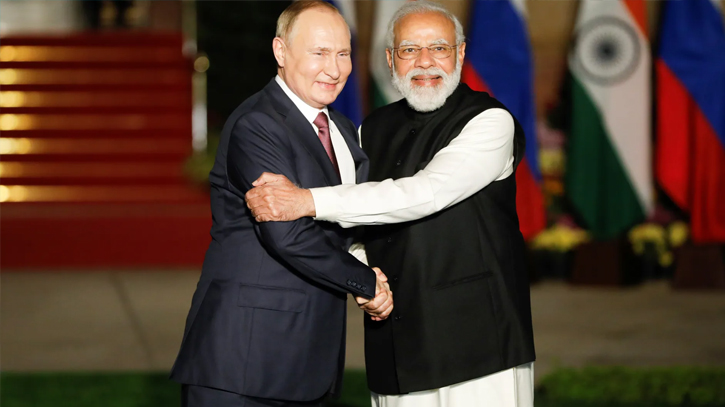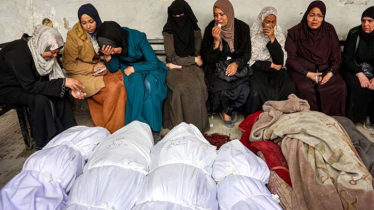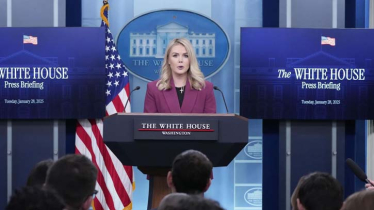
Photo : Collected
New Delhi has called on its Western partners to appreciate the realities of multipolarity, by which countries have “freedom of choice” when it comes to engagement with other nations on the global stage.
Responding to criticism from Washington of Prime Minister Narendra Modi’s recent visit to Moscow, a spokesman for the Indian Foreign Ministry noted that New Delhi has a longstanding relationship with Russia “that is based on mutuality of interests.”
“In a multipolar world, all countries have the freedom of choice. It is essential for everybody to be mindful of and appreciate such realities,” he said.
The comment came in response to remarks made by US State Department official Donald Lu at a congressional hearing on Tuesday (23 July). He said the White House had been disappointed by the “symbolism” and “timing” of Modi’s visit.
Earlier, several US media outlets had reported that Biden administration officials were “frustrated” that Modi’s visit had coincided with a NATO summit in Washington.
India has abstained from UN resolutions condemning Russia over the Ukraine conflict, and has expanded bilateral trade ties with Moscow.
Lu also noted that the US was looking “very carefully” at what Modi did while he was in Moscow, claiming that major defense deals had been signed during the visit.
The remarks by the State Department official contrast with those coming from Moscow and New Delhi following the Putin-Modi bilateral summit. In the joint statement, the two countries underscored the importance of military-technical cooperation and pledged to “maintain the momentum” of joint military cooperation activities.
Notably, the statement mentioned the changing nature of defense cooperation – in what appeared to be a “response” to allegations that India had been “drifting away” from Russia as its largest defense partner in terms of volume of supplies. “Responding to India’s quest for self-sufficiency, the partnership is reorienting presently to joint research and development, co-development and joint production of advanced defense technology and systems,” it said.
Moscow and New Delhi are currently collaborating on a series of defense projects, including the licensed production of T-90 tanks, Su-30MKI fighters, BrahMos missiles, and other weapons systems. Days ahead of Modi’s visit, Rosoboronexport, Russia’s defense-export agency, announced that it was commencing production of 3VBM17 ‘Mango’ rounds in the South Asian country under the ‘Make In India’ initiative. The 125mm projectiles are designed to be fired from the main gun of India’s T-72 and T-90 tanks.
Rostec also announced that another Indo-Russian joint venture had produced and delivered 35,000 AK-203 Kalashnikov rifles to the Indian Ministry of Defense.
Earlier, commenting on Modi’s Moscow visit, US Ambassador to India Eric Garcetti said he respects India’s desire for strategic autonomy. “But in times of conflict, there is no such thing as strategic autonomy,” he claimed. New Delhi then lashed out at Garcetti’s comment, saying the India-US relationship allows for mutual respect and the ability to “agree to disagree” on certain matters.
Messenger/Nishat








